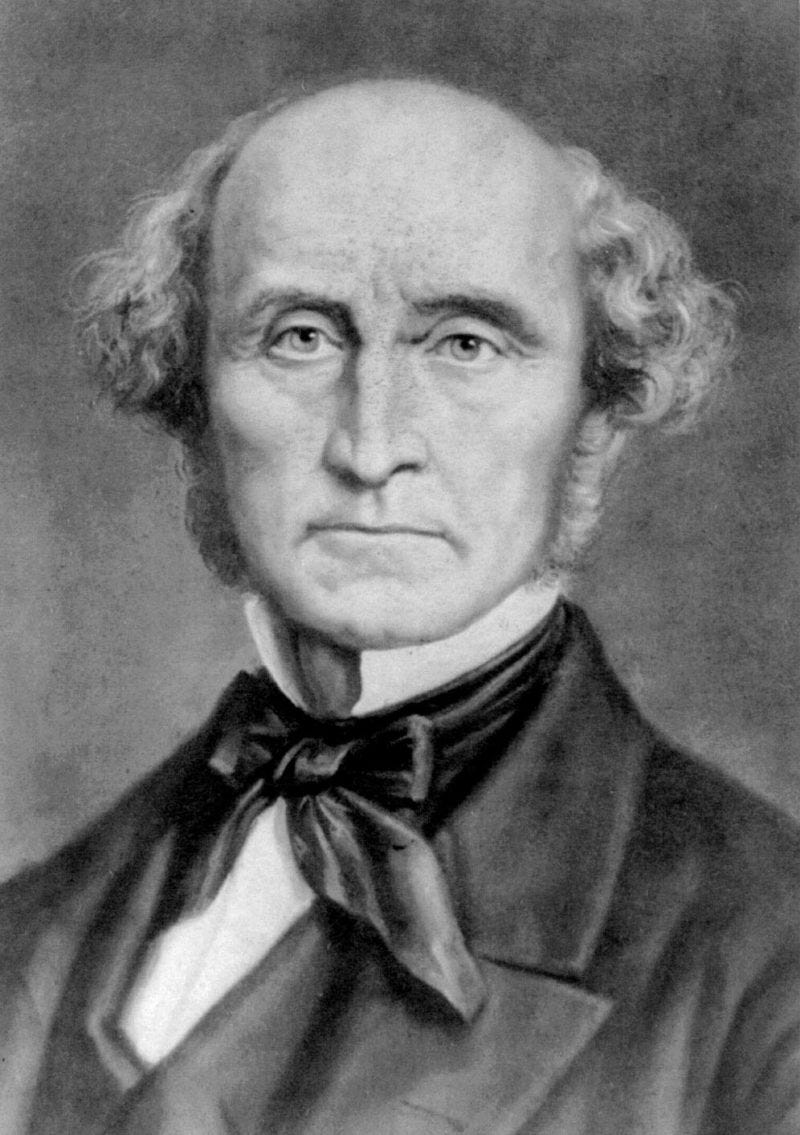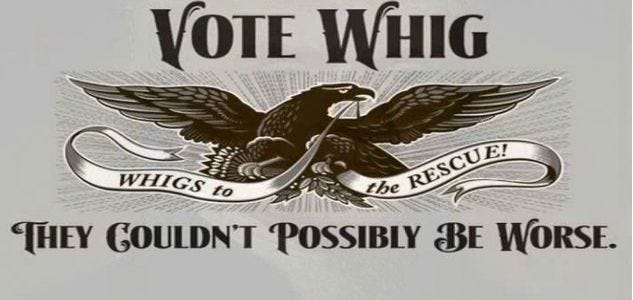Left is for Liberal
Part 1 of liberals vs. cons.
One of the problems with understanding politics is the definitions we use. Most were contrived back in the 1700s. Then rather than make up new ones, we updated the old to arrive at terms like classical liberalism and neo-conservatism, which nobody gets. Here’s what you need to know.
England wrested control away from its monarch in 1688. Rather than having a king or queen make important decisions, we now had elected officials do it. Initially, there were only two political parties: Conservatives and the Whigs. Back then, wealthy people served in parliament (since you didn’t get paid) and only the wealthy could vote (since the masses were considered illiterate). So in essence, you had two conservative parties. What happened next rests on four pillars:
advent of social liberalism
advent of economic liberalism
separation of church and state
the progressive movement
Classic liberalism is the belief in liberty (or freedom) — both social and economic. Early proponents include John Stuart Mill and Adam Smith. Prior to, people thought rights were something given to them by government. But documents like the US Constitution say rights are inalienable (can’t be taken away) and it’s the government’s responsibility to protect those rights. That’s how we got things like habeas corpus (innocence before being proven guilty).
Mill & Smith
John Stuart Mill (1806-1873) was a political philosopher who coined the notion of social liberty. He championed individual freedoms over unlimited state control and advocated for people to better themselves and their situation, as long as they didn’t harm others or society at large. So if someone isn’t hurting anyone, leave him or her alone.
Adam Smith (1723 - 1790) was a pioneer of economics. He said, left to its own devices, a free market will maximize outputs through the invisible hand of supply and demand. So again, to get the most out of your economy, leave it be.
Separation of church and state
The church was always involved in operating any nation. Kings, queens, and the like, relied upon clergy to implement social change, while they themselves had sole control over the economy. And this cooperation was usually successful. But the ambition for one party to obtain absolute power could and would sometimes appear. As a result, it was determined that churches should never be allowed to control government affairs and governments should never be permitted to hold influence over faith. This rule became known as the separation of church and state.
This separation took years to implement but it persevered in most countries. Part of the reason was diversity — people were now subscribing to various belief systems (at least, Catholic and Protestant). And even after the separation, faith continued to play a significant role within culture.
We must also recognize the contribution made by fundamental religion, particularly Christianity, to the development of the West. The principles of hard work and “love thy neighbour” spawned not only ethics and charity, but also the credit system. Unfortunately, there is also a negative side to faith that libertarians wanted to get away from. Old Testament norms relating to the inferiority of women, harsh and cruel punishments, and naming homosexuality a sin, turned off many. So another form of liberalism became freedom away from the Bible.
Progressives
At the outset, governments only did four things:
defend the shores (military)
defend people’s rights (law courts, sheriffs, and police)
create a federal currency
deliver the mail
But in the late 1800s, a labour movement emerged that began to change things. Based on worker uprisings and the global threat of communism, governments started adding public services to their plate. They arrived at what we now call the welfare state.
Modern day liberals sprouted from this movement. For example, in 1859, the Whigs joined with two small groups to form Britain’s first Liberal Party. Six years later, John Stuart Mill joined them as an elected member. Many conservatives agreed with these notions, which caused a split (or schism) in the party. These new conservatives called themselves “progressives” — a label adopted by the Conservative Party of Canada in 1942.
Social liberty
Today, we have two major political parties that are continually being evaluated by their ideology, which has two main components — social and economic.
Both sides agree with Mill’s idea about forwarding the rights of the individual. There is no qualm here. The social contest only comes between liberals, who’ve slipped away from the confines of the Bible, and conservatives who got stuck with it. It’s not like conservatives ran around convincing people to start believing this stuff — they already believed. Actually, up to 100 years ago, most would be considered religious fanatics. Liberals just started to break away, which added a second component to social liberation.
So everyone agrees with freedom. The difference sits when it comes to the Bible. Cons are more willing to keep Biblical law within real law and Christianity in culture. Liberals are the opposite. They say laws should be based on reason, not on what some good book says. Then when it comes to economics, everything reverses. Conservatives are more like Adam Smith. Yes, progressives are fine with the prospect of a welfare state but other than that, they wish for government to stay out of business. Liberals on the other hand are more comfortable with government playing a larger role within the economy. (And hardline conservatives don’t even like the idea of a welfare state.)
Now let’s be honest, liberals are good at this social stuff. I’m sure that recreational pot, legalized prostitution, euthanasia, nude beaches, and removing fidelity from marriage will all come to be. But does any of this have to do with political ideology? Shouldn’t social issues be decided by people and not parties? Aren’t these discussions to be held primarily between the elderly and young? In many respects, social issues are like managing a kid’s bedtime. Parents let them make their own decisions when they are ready. If you deny them at 8, you’re justified. At 12, you should be giving some leeway. And if they don’t have their own way by 24, they’ll revolt.
Summary
On social issues, politicians’ personal opinions shouldn’t matter much when it’s majority rule. The government’s job is to ascertain whether we (society) are ready for the next step. Economically, we’ll continue to talk about things like the size of government and what it should and shouldn’t do, along with the distribution of income (in terms of taxation). That’s enough to fight about.
This whole thing has washed out to liberals being in charge of social liberties while conservatives tend over the numbers. As one Tory said, “They can sleep with whomever they like, as long as they don’t screw with business.” And this will be the topic of another article.
Note: In America, the Christian component is still a big part of the conservative party—and we still see some in Canada. Stephen Harper, considered strong economically, slipped into his platform that “marriage is only between a man and a woman,” and removed the word, progressive, from the party’s name. The party then removed the slight against gay marriage after he retired.


